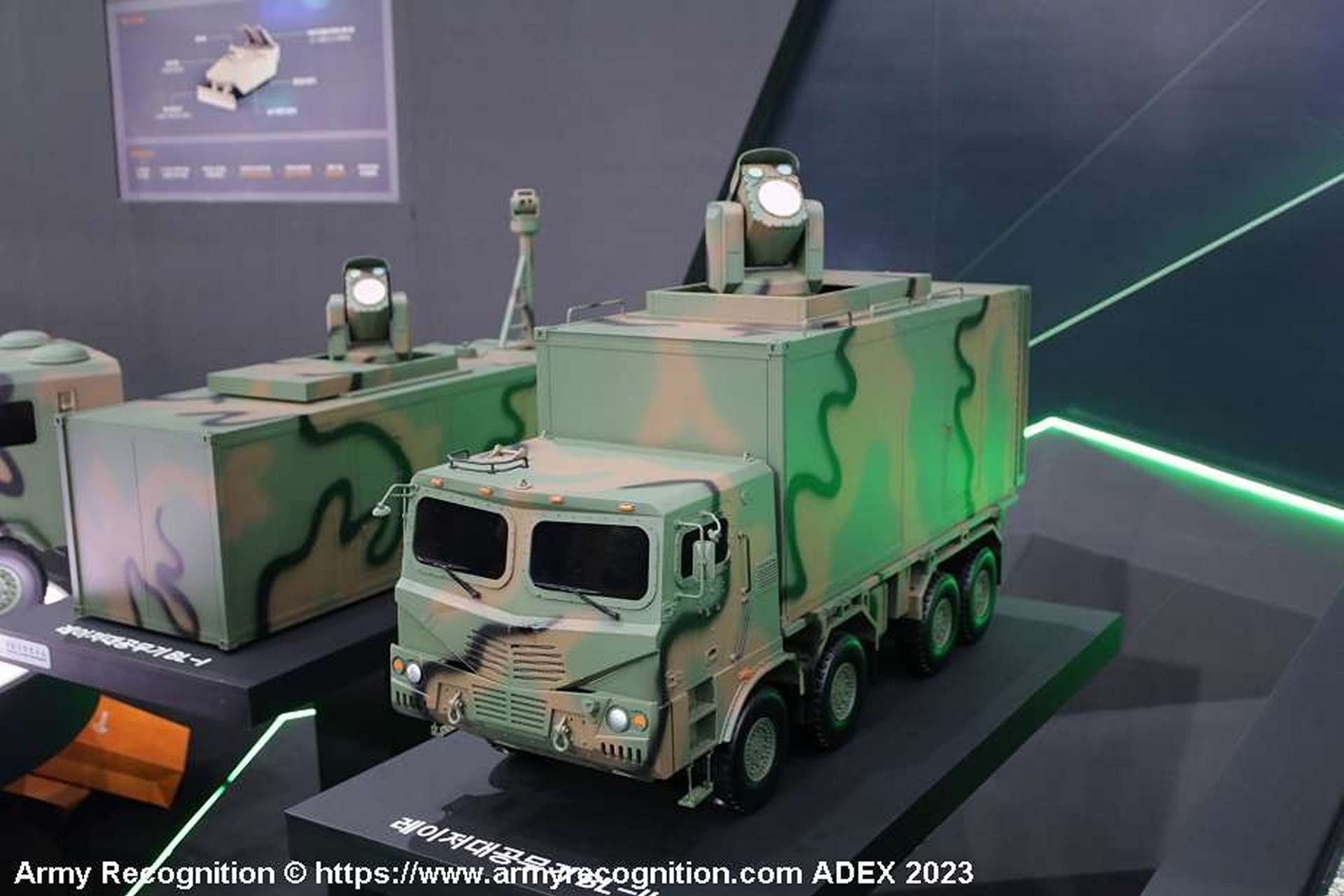Breaking News
South Korea to Deploy Laser Weapons Against North Korean Drones.
South Korea is gearing up to deploy innovative laser weapon systems to counter the increasing threat posed by North Korean drones. The Defense Acquisition Program Administration (DAPA) has announced a significant contract with Hanwha Aerospace Co., valued at approximately 100 billion won ($73 million), to develop these systems. This initiative is part of South Korea's broader strategy to enhance its military capabilities in response to the growing use of unmanned aerial vehicles (UAVs) by North Korea. Follow Army Recognition on Google News at this link

Scale model of Hanwha truck-mounted laser weapon system at ADEX 2023, Aerospace and Defense Exhibition in Seoul, South Korea (Picture source Army Recognition)
The laser systems, designated as "Block-I," are expected to be operational with front-line units by the end of this year, with plans for further deployments in subsequent years. These systems are engineered to intercept small drones and multi-copters by targeting their circuit boards and other critical components, causing them to malfunction and crash. The cost-effectiveness of these weapons is notable, with each shot estimated to cost just 2,000 won (about $1.50).
This initiative follows several incidents, including one in 2022 where North Korean drones breached South Korean airspace, triggering a significant military response that included the deployment of fighter jets and helicopters. Despite these efforts, South Korea was unable to shoot down the intruding drones, highlighting the need for more effective countermeasures. The recent decision by North Korean leader Kim Jong Un to expand his country's UAV program has further heightened these concerns.
Successful tests of the "Block-I" system in 2022 and 2023 have demonstrated its efficacy, although some defense experts remain skeptical about the overall readiness and effectiveness of South Korea's anti-air capabilities. Critics like Lee Illwoo from the Korea Defense Network argue that South Korea's radar systems may not be advanced enough to effectively detect North Korean drones. Additionally, the relatively short range of laser weapons could be a limitation, suggesting that high-power microwave weapons might be more suitable for engaging multiple drones simultaneously.
Despite these challenges, South Korea is committed to advancing its laser technology, with aspirations to develop systems capable of intercepting ballistic missiles. Such advancements are viewed as potential game-changers in future combat scenarios, reflecting South Korea's commitment to maintaining a robust defensive posture against North Korean provocations.
The strategic developments in South Korea's military technology come at a time of heightened tensions between the two Koreas, as evidenced by recent exchanges involving propaganda balloons across their heavily fortified border. These ongoing tensions highlight the complex and volatile security environment in the region, prompting immediate and long-term military planning and preparedness.


























